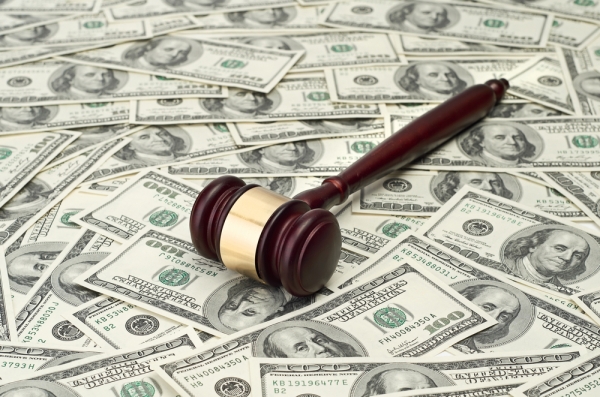In an attempted takedown like that of the tobacco industry in the 90s, lawyers are asking state attorneys general to sue the food industry to make them pay for obesity-related health care costs.
Lawyer Paul McDonald, partner at Valorem Law Group in Chicago, is heading up the movement asking 16 states to take on Big Food.
“I believe that this is the most promising strategy to lighten the economic burden of obesity on states and taxpayers and to negotiate broader public health policy objectives,” he told POLITICO.
Mary Hartley, R.D. shared some of her concerns about litigation of this kind with us. “Lawyers who took on the tobacco companies are fishing for new money,” she said. “They want to take on the food companies, and they see the best route as through the attorneys general. Independent lawyers would do the legal work for the attorneys general in exchange for a cut of the settlement.”
She added that a ruling by the U.S. House of Representatives in 2005 stated fast food restaurants cannot be blamed for causing obesity, and more than 20 states have similar laws on the books.
According to Hartley, most people consider obesity to be a choice. She cited a recent survey conducted by food economists who found obese people don’t blame restaurants, grocery stores, farmers, or government policies for obesity. However, that doesn’t mean food companies are completely in the clear.
“Food and beverage companies have contributed to the obesity crisis and they should bear part of the economic burden,” Hartley said. She also said state governments are becoming increasingly burdened by the cost of obesity and associated diseases.
The states being asked to sue Big Food; California, Connecticut, Delaware, Iowa, Kentucky, Maryland, Massachusetts, Minnesota, Mississippi, New Jersey, New Mexico, New York, Nevada, North Carolina, Oregon, and Pennsylvania, have not yet committed to pursuing litigation.
Hartley feels it’s a matter of time before litigation starts “chipping away at the food industry,” but not in the way proposed by lawyers like McDonald.
She thinks lawsuits will focus on two things: foods that cause harm and mislabeled products. Possible cases could include illness caused by dietary supplements, false advertisement claims of “all natural” products, and the violation of specific rules about ingredients e.g. Chobani listing “evaporated cane juice” instead of sugar.
However litigation works out against the food industry, it’s likely not going to be in a big takedown in the style of Big Tobacco.
“Battling the food industry is not like battling tobacco,” Hartley said. “Tobacco is proven to be addictive; food has not been proven to be addictive. There is no necessary use of tobacco; food is necessary.”
Also Read:
Obesity’s Dual Causes: Behavior and Biology
New Nutrition Label is Two Years Away! FDA Deputy Director Confirms Steps to Reform
70 More Calories in Baked Cheetos Than Crunchy and More Junk Food Hiding Behind Health Halos

